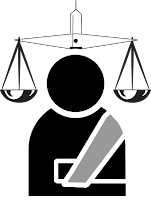Most LLB courses take four years full time study or equivalent part time. Students who already have a degree or have done some other study are usually able to do an LLB in three years. Many students do “combined degrees”: an LLB together with, e.g., an Arts, Science or Commerce degree. This can mean a total of up to five or six years of full-time university study.
As part of your LLB you must pass certain “core” subjects in order be admitted to practise as a lawyer later on, e.g. constitutional law, contract law, and criminal law. These subjects have been identified by the Council of Legal Education as necessary areas of knowledge for all lawyers in Victoria. Most law schools will also require law students to complete some other subjects. In most law degrees, these core and compulsory subjects take up about two-thirds of your law course. The rest of your law degree will be made up of “elective” subjects, e.g. intellectual property law, taxation law, jurisprudence, family law, etc.
During university holidays (summer and winter), you may be able to work for law firms as a “law clerk” (also known as a “paralegal”) to gain some work experience. See more on this below in section 5.
Step 2 to become a lawyer: Do Practical Legal Training
The Council of Legal Education also requires that, in addition to having the appropriate academic qualification, Victorian lawyers have completed practical legal training. This is because to be able to work as a lawyer, you need more than what you can learn at university. You also need to have practical legal skills that will enable you to draft letters, interview clients, arrange the sale of land, negotiate contracts for clients, and many other practical tasks that are an essential part of the work of most lawyers.
Most university law degrees will give you the opportunity to learn a little of some of these skills (either in specific units dedicated to teaching these skills or in the course of other law units, e.g. by doing mooting in an evidence unit), but you will still need to complete practical legal training.
Currently in Victoria, this can be done in four different ways:
- Articles of Clerkship
- Practical Training Course (Leo Cussen Institute)
- Victorian Professional Program (College of Law Victoria)
- Postgraduate Diploma in Legal Practice, Skills & Ethics (Monash University)
Articles of Clerkship
“Articles of clerkship” is essentially a form of apprenticeship, whereby a law graduate works as an “articled clerk” for a solicitor for (usually) 12 months. (The “articles” here is basically the document which contains an agreement between you and the solicitor that they will train you to be a solicitor while you work for them.) This is the traditional form of gaining practical experience. In fact, in the past, when law degrees did not exist, all lawyers entered the profession this way.
One of the main features of “doing articles” is that you are working in a real legal practise and are getting paid for it. These two factors make articles the preferred form of practical legal training for most law graduates seeking to join the profession.
As an articled clerk, you are “articled to” a specific lawyer (your “principal”). Your principal may be a sole practitioner or a solicitor practising law in partnership with other solicitors. Some government organizations (such as Victoria Legal Aid or the Office of Public Prosecutions) and private corporations also offer articles of clerkship.
The other options for practical legal training are all courses run by various
organizations. They differ from doing articles primarily in that you pay a fee to do the training, and you are (mostly) not working in a real legal practice. Nonetheless, the training provided by such courses can be very useful, and many lawyers enter the profession in this way. The old rule of thumb is that articles with a good law firm that trains you well is preferable to doing a training course, but that doing a training course is much more preferable than doing articles with a law firm that does not train you well. Some law firms provide in-house training through the College of Law (see below).
This course is run by the Leo Cussen Institute, in Melbourne’s central business district. It runs for about seven months, from March to October. The course is centred around students running a simulated legal practice. Toward the end of the course students have to undertake a three week work placement to satisfy the final requirements of the course.
The Leo Cussen Institute also offers (from 2004) an online practical training course (with an on-site attendance component).
The Leo Cussen Institute is a non-profit educational body that has long been closely associated with the legal profession in Victoria. (It is named after Justice Leo Cussen, a former Victorian Supreme Court judge.)
Victorian Professional Program (College of Law Victoria)
This program, run by the College of Law Victoria, consists of 15 weeks (or part-time equivalent) of online and face-to-face course work and 15 weeks of workplace experience, followed by continuing professional education.
The College of Law Victoria is a joint venture between the Law Institute of Victoria and the College of Law, which is headquartered in New South Wales and has been providing practical legal training in that state for many years. It has branches in Victoria, Queensland and Western Australia.
Postgraduate Diploma in Legal Practice, Skills & Ethics (Monash)
This course, run by Monash University, consists of 22 weeks of full-time study, and has two intakes a year (January and July). Classes are held at Monash University’s city premises in Bourke Street, Melbourne. There is also an online version of the course commencing in March each year, which takes 39 weeks and has some face-to-face classes.
Step 3 to become a lawyer: Get Admitted to Practice by Supreme Court
Once you have your academic qualification and have completed your practical legal training, you need to apply to the Supreme Court of Victoria to be “admitted to practice”.
It is an important feature of the legal profession that it is the Supreme Court of the relevant jurisdiction that “admits” you to practice. Every Victorian lawyer is thus officially called a “Barrister and Solicitor of the Supreme Court of Victoria.” This means that each lawyer is an “officer” of the Supreme Court. The Court takes this very seriously and each applicant needs to prove to the Court’s Board of Examiners that they are a fit and proper person to become a lawyer in Victoria. For example, a string of recent convictions for fraud may prevent an applicant from being accepted by the Court. Usually, though, the process is simple and most applicants are admitted to practice. Most applicants are admitted in a special ceremony held at the Supreme Court.
Once admitted to practice by the Supreme Court, you usually remain admitted for life, unless you are removed from the roll for misconduct or some other reason.
Step 4 to become a lawyer: Get a practising certificate
Just because you are “admitted to practice” by the Supreme Court does not mean that you may then start working as a lawyer. You must also obtain what is called a practicing certificate. Essentially this allows you to work as a lawyer during the period covered by the certificate (usually 12 months), so your practising certificate will need to be regularly renewed.
The Legal Services Board issues local practising certificates to lawyers who intend to practice law in Victoria. The Board has also delegated this power to issue practising certificates to the Law Institute of Victoria (for solicitors) and to the Victorian Bar (for barristers).
Practising Interstate
Once you are a qualified Victorian lawyer, if you want to practice law in another
Australian state or states, then it is usually a straightforward administrative procedure, under the mutual recognition arrangements, to get permission from the relevant states’ courts and regulatory bodies to practice there.











